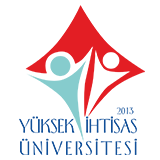Faculty of Medicine - Department of Physiology
Dear Students, I am Professor Doctor Sami Aydoğan, Head of the Physiology Department. The fundament of medical education is actually based on anatomy and physiology. In this respect, it turns out to be clear how important physiology is in raising a good doctor in medical education since while anatomy examines the human body structurally, physiology works on its functions, and it is covered in years 1 and 2 of the programme. In the first year, physiology lectures are taught in two committees. In the first committee, there is a subcommittee called ‘cell committee’, where physiology is taught. The topics that are covered in this committee are structure, function and mechanisms of the cell; deficiencies that may occur in the cell; and to gain knowledge on possible reactions that the body develops through the communication and signalisation between the cells in case of alterations inside the body. In the second committee, there is a subcommittee called ‘tissue committee’, where muscle physiology is taught. Considering physiology as a set of systems, there are about 8 to 10 systems such as nervous, respiratory, circulatory and endocrine, and one of them is muscle physiology, in which the working principles and functions of three muscles, namely smooth, cardiac and skeletal, and the physiopathological reactions that may occur in them are introduced. Year 2 begins with other systems, particularly the nervous system. Upon the introduction of the nervous and sensory system, topics such as respiratory and circulatory systems, blood physiology, respiratory system physiology and circulatory system physiology are covered. Our next committee concerns the nervous system and metabolism. Here, digestive functions, metabolic events and their physiological processes are introduced. Our last committee is Urogenital System. We introduce the topics with a wide range of content such as kidney physiology, excretory physiology, all hormones in the endocrine system, hormones secreted by the endocrine glands and their functions in the body. In order to be a bridge to year 3, more precisely to the clinic, the physiopathological conditions experienced in these processes, that is, some diseases are introduced. Diseases such as diabetes, hypertension or disorders related to endocrine function are introduced as a preliminary to year 3. We have around 15-20 laboratory practices in the 1st and 2nd semesters. In these laboratory skills, practices related to the nervous system, senses and respiration are carried out. Head (the upper part of the human body) in physiology is not included in medical education. It is taught in physiology education in years 1 and 2 only. Laboratories are important for students to see, consolidate or apply what they learn in physiology. Currently, there is no internship that covers physiology.It is very important to attend some congresses held every year within the physiology programme. It is also important to attend those congresses, and there is nothing that can compare to first-hand experience of listening to the advancements from the scientists, no matter how much is read about the subject. Our physicians who graduate from medical school choose to specialize in either clinical or basic sciences. We of course come out on the basic sciences. There was no feedback from students saying that they had specific difficulties in the following lessons or on the following subjects, but in general, they may have more difficulties with the nervous system. It might be long committees fraught with difficulty for the students. Apart from that, we guess that all our students are satisfied as physiology is a really enjoyable lesson. If they really like to do research, I recommend them to prefer physiology and work as an academician in academia. Considering the design of the classrooms and laboratories, our university is a place where students commune with grace. In my opinion, being close to each other, the classrooms, lecture halls, laboratories provide opportunities that can keep students together and ensure their integration. Apart from these, we have libraries and research laboratories. I can say that these laboratories are also well-equipped. For these reasons, students will prefer Yuksek Ihtisas University. We look forward to seeing all our students at the Medical Faculty of Yuksek Ihtisas University. It is our greatest desire to meet you. We also want to welcome those who will choose physiology. We wish to be a part of this large family soon, we are waiting for you all.
show more


